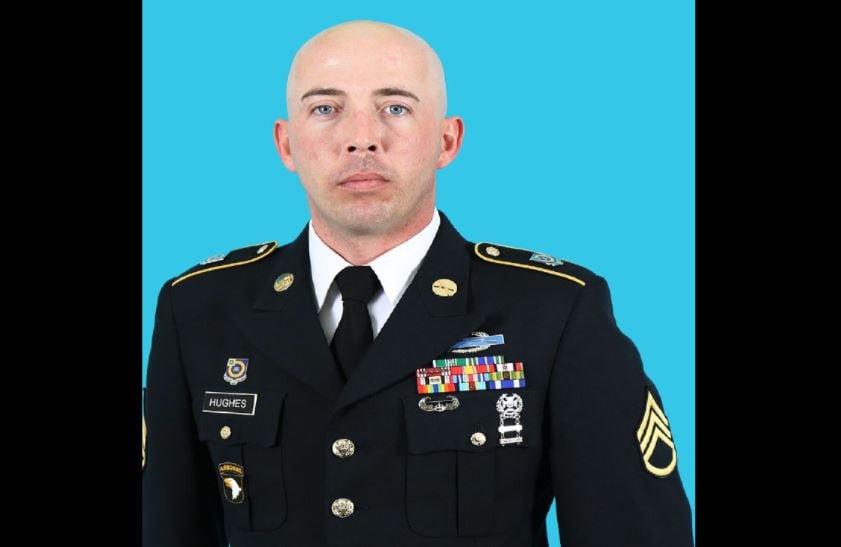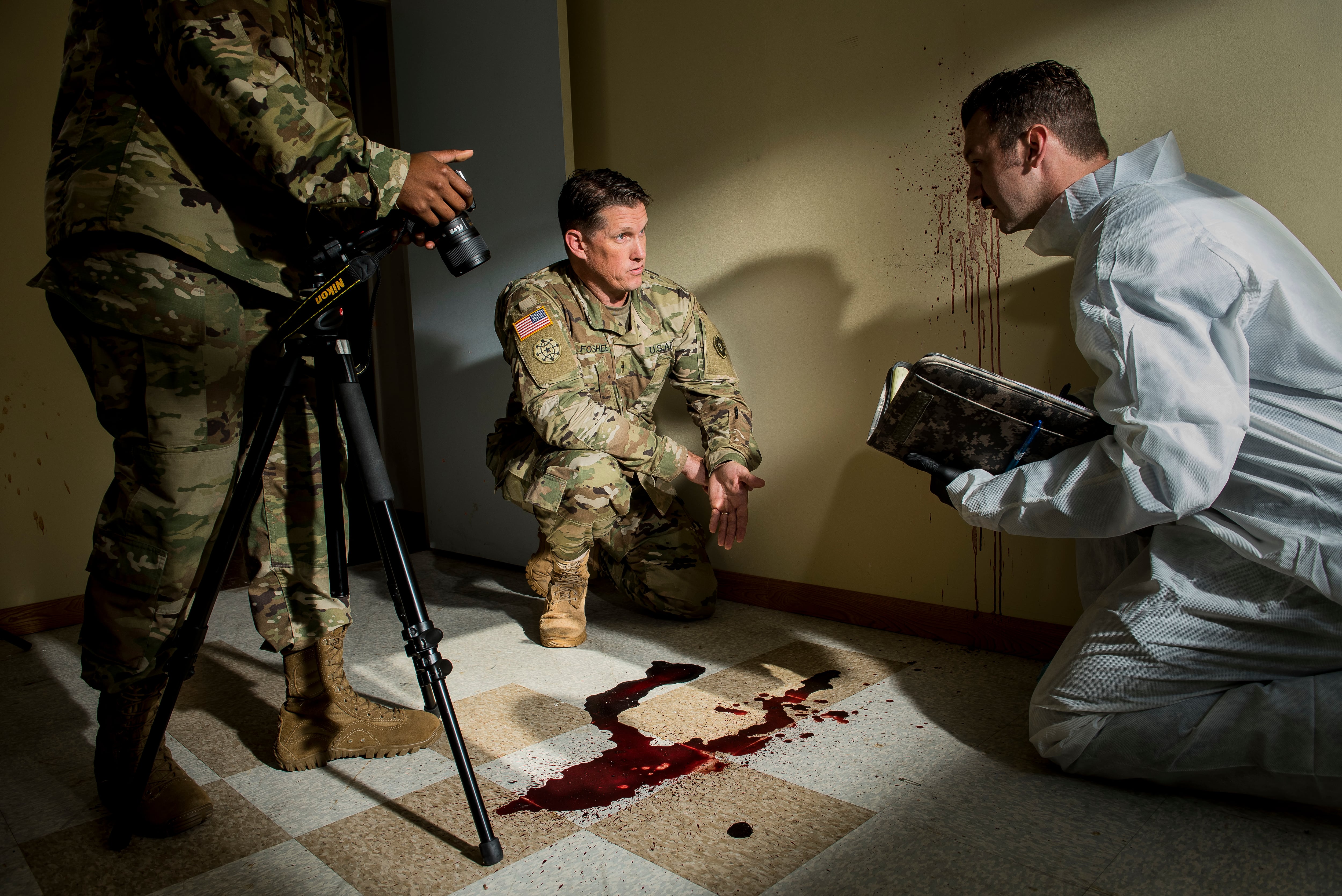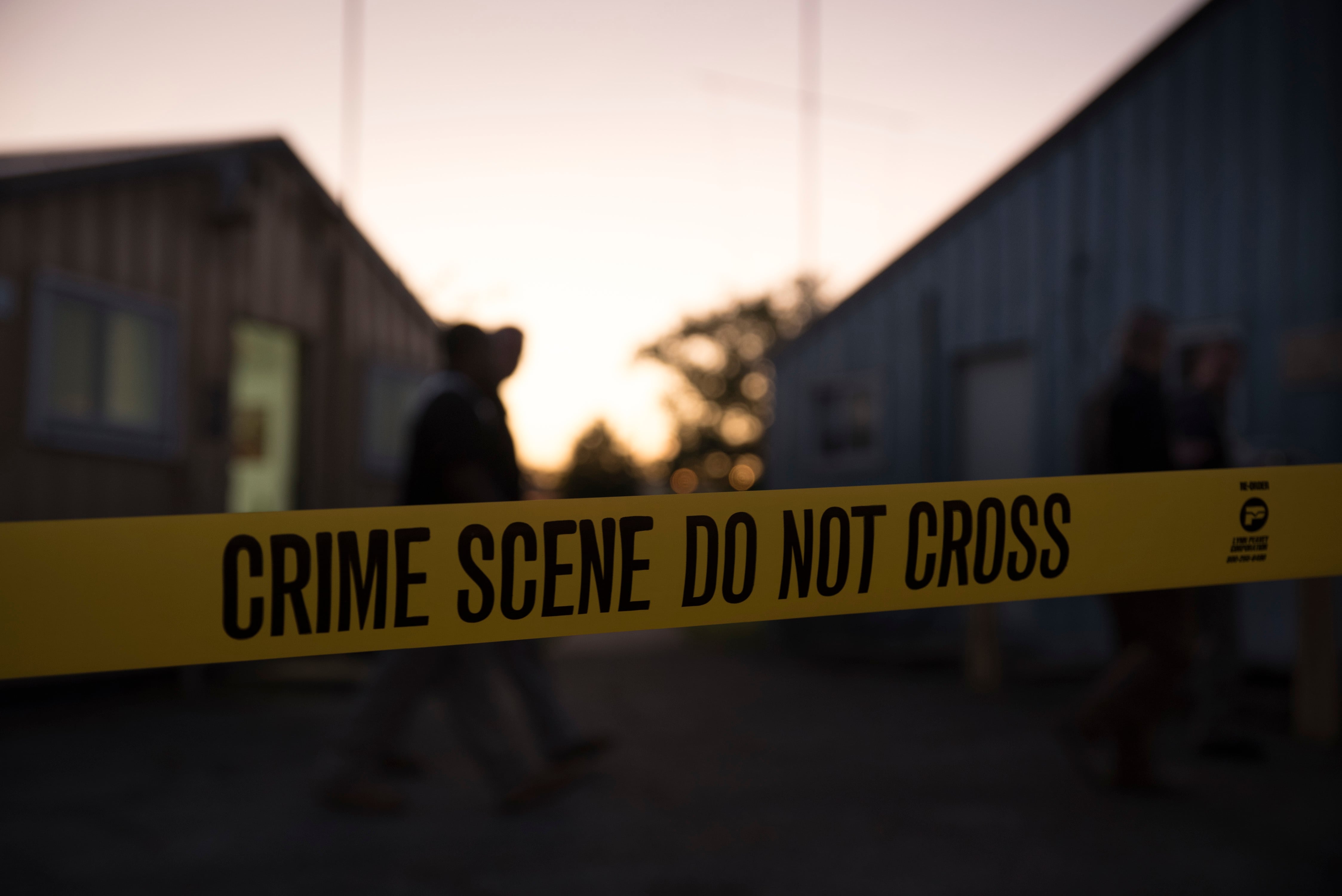Pvt. Jonathan Lauture never once denied that he killed Jason Lindsay on the night of June 19, 2019.
Police officers in El Paso, Texas, said it was a “justified homicide” under state law — Lindsay was just across the door frame of Lauture’s off-post apartment. A grand jury agreed, and Lauture didn’t face civilian criminal charges.
But the Army’s Criminal Investigative Division had no idea Lauture had killed a man, according to Col. Cathy Wilkinson, an Army spokesperson. And at the time, CID had no idea that Lauture had been beating his wife since March 2019.
Fort Bliss CID never learned how Lauture had beaten his wife with a picture frame that night, nor did they learn how Lindsay, who was unarmed, was attempting to rescue Lauture’s wife from the abuse.
Fort Bliss CID also didn’t see the civilian police records describing the “history of family violence” at Lauture’s home.
But Lauture’s chain of command, knowing he’d killed someone, quickly moved to reassign him.
And so Lauture and his wife moved to Fort Stewart, Georgia, where he continued to beat her, choke her, and — on at least one occasion — point a gun at her.
CID only learned of the shooting after special agents began investigating Lauture’s domestic violence at Fort Stewart in December 2019, five months of abuse later.
Lauture, then a private first class, was convicted last year by a general court-martial at Fort Stewart on four counts of spousal battery, four counts of obstructing justice, four counts of disobeying orders and a count of assault with an unloaded firearm. He was sentenced to two years and one month of confinement, reduced to E-1 and a dishonorable discharge.
Now, Lauture faces a second general court-martial — this one for the 2019 shooting.
Army Times reviewed Lauture’s case through public records requests and Army court-martial records.
The record reveals a lack of communication between Fort Bliss CID and local law enforcement, as well as a missed opportunity for Lauture’s Fort Bliss commanders to notify CID that combined to allow the abuse to continue, placing his wife at continued risk of serious injury or even death.
The shooting
When an El Paso police sergeant was first to the scene at Lauture’s off-post apartment on the night of the shooting, he found the soldier waiting on his knees in the hallway with his hands behind his back. His unloaded Glock 19 pistol and a Texas concealed carry permit were on the ground next to him, according to police records obtained through a Texas Public Information Act request.
Lindsay’s shirtless body lay feet away, just inside the door of the apartment, shot six times.
Several witnesses told police that Lindsay had come to rescue Lauture’s wife, whom Lauture had allegedly beaten with a picture frame that evening. Police found and photographed injuries on her arms.
The police had been at Lauture’s apartment a week prior to the shooting, too, a witness said in his statement to detectives.
“The man and woman were arguing/fighting in the apartment,” said the witness, who was Lauture’s neighbor and a fellow Fort Bliss soldier. “I think some things may have been thrown around because there was broken glass outside of the apartment.”

A veteran El Paso detective, Michael Aman, noted the couple’s “history of family violence” in a supplemental report submitted to the district attorney’s office about the shooting.
Lauture, who was later convicted of obstructing justice for separate incidents of forcing his wife to recant abuse accusations at Fort Stewart, was aware of this history.
“Don’t say anything until you talk to our lawyer!” shouted Lauture to his wife from the back of a police cruiser, according to police records.
But because Lindsay went through Lauture’s door with the intent to assault him, police said, the shooting was a “justifiable homicide” under Texas state law. El Paso police quickly reached this conclusion — they issued a press release within 24 hours announcing that the shooting was “in self-defense inside the apartment.”
And the El Paso Police Department didn’t submit charges for domestic violence, either, despite the evidence in the case file.
“We are unable to find any domestic violence cases presented to our office,” the El Paso County district attorney’s office said in a statement emailed to Army Times. “Charges cannot be brought if there is no presentation of an offense report.”
A legal expert told Army Times that the Uniform Code of Military Justice supersedes state self-defense enhancements like “stand your ground” and the “castle doctrine,” though.
RELATED

“State law makes no difference for UCMJ purposes,” said Gene Fidell, a military law expert. “The defense can make a motion on that basis, but it’s not going to get anywhere.”
But Army investigators had no idea that the shooting had even occurred, much less the domestic violence.
“The exact details of the El Paso investigation were not immediately provided to CID or military authorities,” said Army spokesperson Col. Cathy Wilkinson.
There are no defined procedures for El Paso police or the DA to share case files with CID, Army Times found.
“The only body to which cases are presented for prosecution is the district attorney’s office,” said Sgt. Enrique Carrillo, a spokesperson for the El Paso Police Department. “Any other interested parties could request the case through appropriate channels.”
“Professional courtesies allow for communication with Fort Bliss CID if military personnel reach out to inquire about cases involving soldiers,” reads the statement from the El Paso County district attorney’s office. “This case was handled exclusively by the prior administration and a team of attorneys who are no longer employed at this office. The current DA cannot guess as to the reasons behind any action or failure to act.”
New post, same abuse
Despite CID being unaware that the shooting or any domestic violence had occurred, the Army moved rapidly to reassign Lauture to Fort Stewart after the shooting. At the time of the killing, Lauture was a member of the 47th Brigade Support Battalion, which is part of the 1st Armored Division’s 2nd Armored Brigade Combat Team.
“Jonathan Lauture was not the subject of a CID investigation prior to his transfer to Fort Stewart,” said Wilkinson, the Army spokesperson. “Details about a Soldier’s personnel records are limited by privacy laws and regulations.”
Lt. Col. Allie Payne, a Fort Bliss and 1st Armored Division spokesperson, confirmed the transfer “was related to the June 2019 off-base shooting” when reached by Army Times.
“The incident occurred off of the installation boundaries and therefore was under the jurisdiction of the El Paso Police Department, which did not consider PV1 Lauture a criminal suspect in August 2019,” Payne said. “Team Bliss is committed to ensuring the fair administration of military justice at all levels of command. Commanders at Fort Bliss remain fully committed to ensuring good order and discipline in their formations while ensuring that every accused Soldier enjoys a presumption of innocence until proven guilty.”
RELATED

It was not immediately clear whether anyone in Lauture’s chain of command was aware of the ongoing domestic abuse.
But one thing is certain: Lauture’s Fort Bliss chain of command did not inform CID of the shooting. Nobody did, until a domestic violence investigation in December 2019 by Fort Stewart CID incidentally learned that Lauture had killed a man who was attempting to rescue his wife.
Court-martial records show the extent of the abuse before Lauture was finally confined in March 2020. He pled guilty on all charges that July.

He started in March 2019 by beating her “with his fists” when they still lived in El Paso.
Immediately after moving to Hinesville, Georgia, he pointed his gun at her on occasions between August and October 2019. Prosecutors initially said Lauture had put the gun in her mouth, but the judge amended the specified charge.
Then he choked her there, again in October 2019.
The following month, while in Boston, Lauture shoved his wife, hit her with the cord to his headphones, and punched her in the legs.
Lauture’s wife reported the abuse to CID on Dec. 4, 2019, and his commander issued a no-contact order.
He broke the no-contact order and assaulted her again in Hinesville a month later.
The next month, while his brigade was at the National Training Center at Fort Irwin, California, Lauture also violated the no-contact order in an effort to convince his wife to lie to CID about the abuse.
He then pulverized a cell phone on March 2, 2020, in an effort to destroy evidence shortly before his arrest.
Lt. Col. Lindsay Elder, a 3rd Infantry Division spokesperson, said Lauture was ultimately charged one year later with unpremeditated murder.
“The charges are allegations and the accused is presumed innocent unless and until proven guilty at a judicial proceeding,” Elder added.
A murder trial
The murder proceedings against Lauture are expected to begin this week at Fort Stewart, Elder said.
His arraignment hearing is slated for Thursday, and the service’s online court-martial portal says he pleaded not guilty.
Army Times reached out to Fort Stewart Trial Defense Services but could not immediately identify or reach a defense attorney for Lauture.
The military justice system has a high bar for defendants claiming self-defense in murder cases — the defendant must have been at objective risk of death or “grievous bodily harm” and believed that the force used was necessary to prevent such harm.
A challenge facing Lauture’s defense is that Lindsay was shirtless and unarmed when Lauture shot him, and unarmed assaults rarely cause grievous bodily harm.
The maximum punishment for unpremeditated murder is a life sentence without the possibility of parole, according to the manual for courts-martial, which governs the military’s criminal proceedings.
Lauture’s trial is tentatively slated for Oct. 25 at Fort Stewart.
Davis Winkie covers the Army for Military Times. He studied history at Vanderbilt and UNC-Chapel Hill, and served five years in the Army Guard. His investigations earned the Society of Professional Journalists' 2023 Sunshine Award and consecutive Military Reporters and Editors honors, among others. Davis was also a 2022 Livingston Awards finalist.





